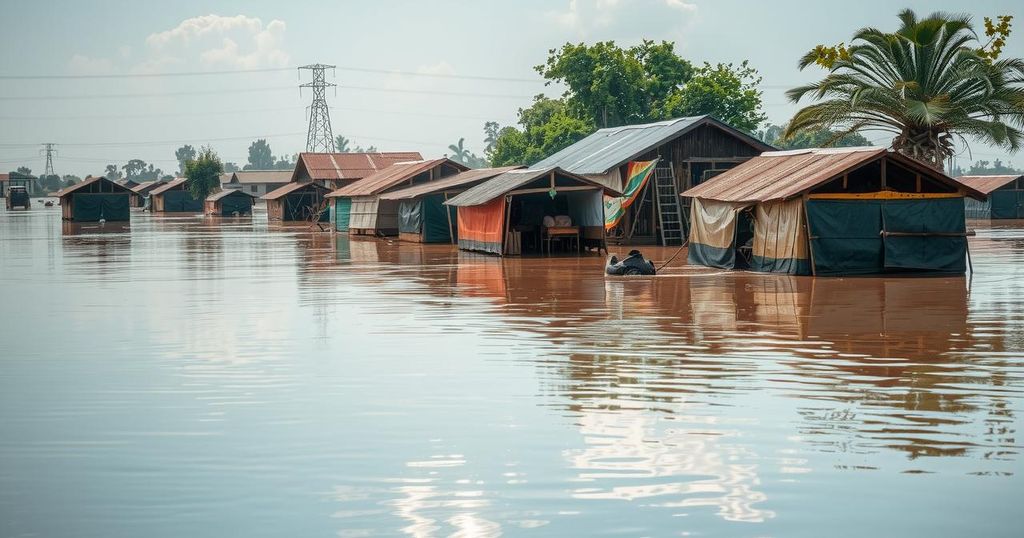Annual Flooding Crisis in South Sudan: Communities Adrift on the Jonglei Canal
Flooding in South Sudan has escalated into a recurring crisis, with tens of thousands living in temporary settlements along the Jonglei Canal. This phenomenon disrupts livelihoods as villages flood, farmland is lost, and livestock perish, compelling residents to undertake hazardous journeys for medical assistance.
In South Sudan, flooding has become an annual catastrophe, affecting tens of thousands of residents who reside in precarious makeshift settlements atop the limited high ground offered by the Jonglei Canal. While seasonal flooding has traditionally been integrated into the livelihoods of pastoral communities near the Sudd—a vast wetland—it has intensified in recent years. This increase in water coverage has inundated villages, devastated agricultural lands, and resulted in significant livestock losses. Local inhabitants report perilous journeys, sometimes wading through floodwaters for several hours to access medical care, all while contending with the risk of encounters with poisonous snakes.
South Sudan faces a pronounced challenge due to regular and severe flooding, largely exacerbated by climate change and geographical factors. The Jonglei Canal, within which many residents have taken refuge, exemplifies the struggle of communities as they attempt to adapt to their changing environment. Historically, these areas have managed seasonal water fluctuations, but the increasingly persistent and extensive flooding poses severe threats to their survival, economic stability, and health.
The annual flooding in South Sudan represents a significant humanitarian crisis, with communities increasingly vulnerable to the impacts of climate change and environmental degradation. As they navigate the challenges posed by rising waters, the urgency for effective interventions—whether in infrastructure improvements, healthcare access, or agricultural resilience—remains paramount. Addressing these critical needs is essential for the long-term sustainability and safety of affected populations.
Original Source: apnews.com




Post Comment